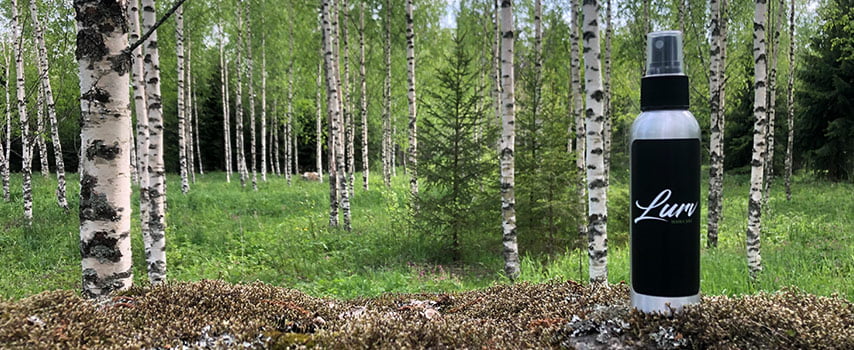Hair loss and hair thinning is a common concern for people of all ages. Ageing, genetics, and lifestyle are examples of things that can cause hair thinning or hair loss. Luckily, there are many things you can do to slow or even stop hair loss completely.
In this article we have listed our top five do’s and our top five don’ts for reducing hair loss. Just remember that consistency is key! No matter what measures you take to reduce your hair loss it can take between six months to a full year to see the final results. In other words – don’t give up too early.
Thing you should do to reduce hair loss:
1. Eat healthy
A 2018 study showed that consuming high amounts of raw vegetables and fresh herbs more than three days a week may reduce the risk or slow the onset of androgenic alopecia (male pattern baldness or female pattern baldness). Try a Mediterranean diet or introduce foods like parsley, basil, and salad greens into your diet to reduce hair loss. Couple this with drinking 7 – 8 glasses of water every day to make sure that your hair stays healthy.
The hair follicles on your body are mostly made of a protein called keratin. Eating a balanced diet rich in protein may help prevent hair loss by replenishing the amino acids that serve as the building blocks of protein. Healthy protein choices include nuts, eggs, beans, peas, chicken, and turkey. Remember that consistency is key.
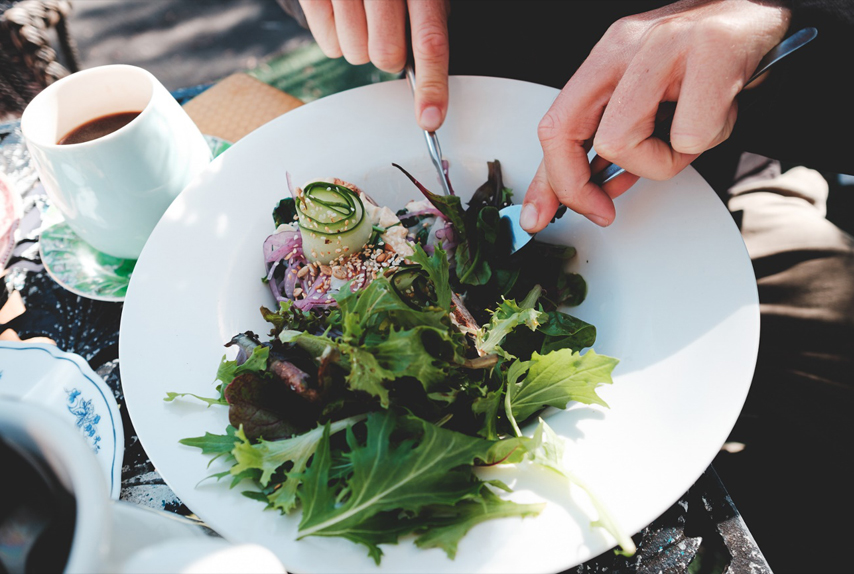
2. Make sure you’re getting enough vitamins and minerals
Research has determined that vitamin A, B, C, D, and iron, selenium, and zinc are important in the hair growth and retention processes, especially in cell turnover. Biotin, also called vitamin H, is involved in the fatty acid synthesis which is an essential process in the hair life cycle. If you have a biotin deficiency you can experience hair loss, but biotin can improve hair growth even if a person isn’t deficient. To make sure your hair is getting all the essential vitamins and minerals it needs, consider introducing supplements like multivitamins, vitamin D, iron, zinc, or biotin into your diet.
3. Take care of your scalp
Healthy scalp = healthy hair. Scalp care is self-care, think about treating your scalp like you treat your face: make sure it’s healthy and clean. If you’re experiencing a build-up of dirt and oils on your scalp, consider using a gentle scalp exfoliant once or even twice a week. Don’t wear hats too often and avoid very tight hairstyles like braids or ponytails, these can all cause excessive shedding or traction alopecia by pulling hairs out of the root.
Try making a 5-minute scalp massage into a daily habit. Scalp massages help stimulate hair growth by increasing blood flow to the hair follicles and relieving tension in the scalp. Use medium-firm pressure and massage your scalp with your fingertips in a circular motion. You can use a scalp massage device like our Rock ‘n Roller to make the process even easier. To make your daily massage as effective as possible consider massaging your scalp with a natural oil or a serum made to stimulate hair growth, like our Lurv hair care serum.
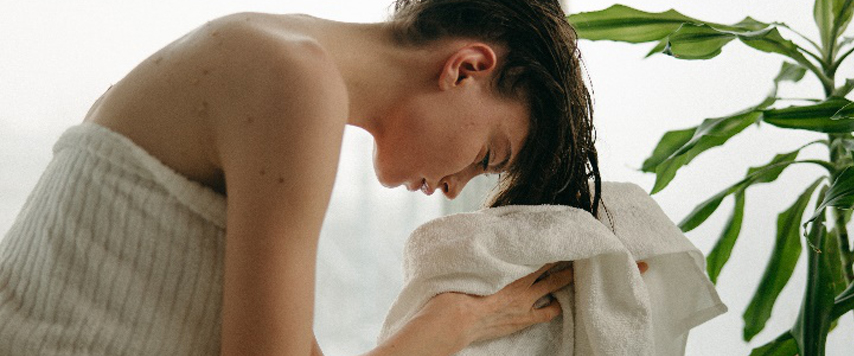
4. Dry your hair gently
Vigorous or rough drying with a traditional towel can damage your hair. The coarse texture and dryness of a cotton towel can rough up the hair shaft during the drying process. This can in turn worsen split ends, cause weak or fine hair to snap and damage new follicles.
Instead use a super soft cloth and pat rather than rub your hair to get rid of excess moisture. Always let your hair air-dry if possible. Consider investing in a hair towel made of soft microfiber or switch out your regular towel for a t-shirt when drying your hair.
5. Keep your hair short
Cutting your hair short will get rid of dry, brittle split ends and make your hair seem thicker. Having short hair also means there’s less maintenance, faster air-drying, and that your hair is easier to style and care for. Short hairstyles will de-emphasize the appearance of balding or thinning hair since you’re perceived as confident by others for not trying to cover anything up. This is especially true for men with receding hairlines. Do you need inspiration or ideas for your next short haircut? Check out our article on the Top 10 Hairstyles for Thinning Hair.
To reduce hair loss, don’t do these things:
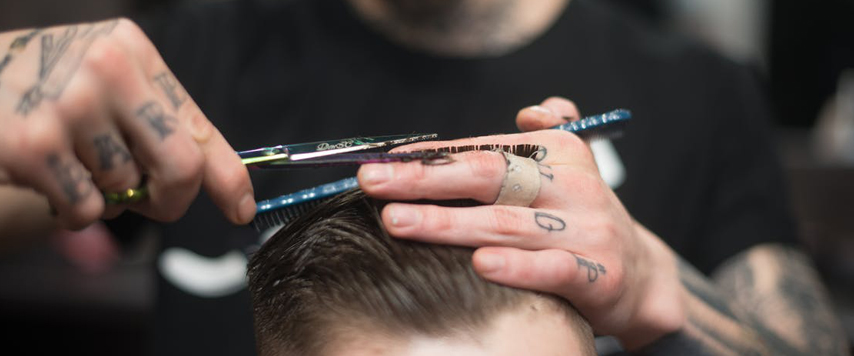
6. Don’t stress
The way you live your life can very much affect your hair. Lack of sleep, a poor diet, smoking, and especially stress can lead to hair loss. This type of lifestyle induced hair loss is thought to be behind the rising amount of hair loss among Asian men. Not all types of hair loss are caused by stress, but there are three types of hair loss that are commonly associated with high stress levels: Telogen effluvium, alopecia areata, and trichotillomania.
– Telogen effluvium (TE) is a form of temporary hair loss characterised by hair thinning or increased hair shedding after prolonged periods of stress, a shock, or a traumatic event. People affected by TE usually don’t lose all of their scalp hair and luckily hair loss from TE is fully reversible.
– Alopecia areata (AA) is a common autoimmune disorder that can result in scalp hair falling out in patches. AA can be triggered by stress and occurs when white blood cells attack the hair follicles and cause them to shrink or slow down hair production. AA has no cure, but there are treatments that help the hair re-grow quicker.
– Trichotillomania is an impulse control disorder where a person pulls out the hair from their scalp or other parts of their body. The hair pulling can happen without much thought or be done intentionally to relieve stress or other negative emotions. It isn’t clear exactly what causes trichotillomania, but research suggests it might be genetic.
Learning to manage your stress levels may reduce your risk for stress induced hair loss or reduce your risk for further hair loss. Try exercising, increase your focus with yoga, meditation or breathing exercises, pick up a new hobby, or keep a daily stress journal.
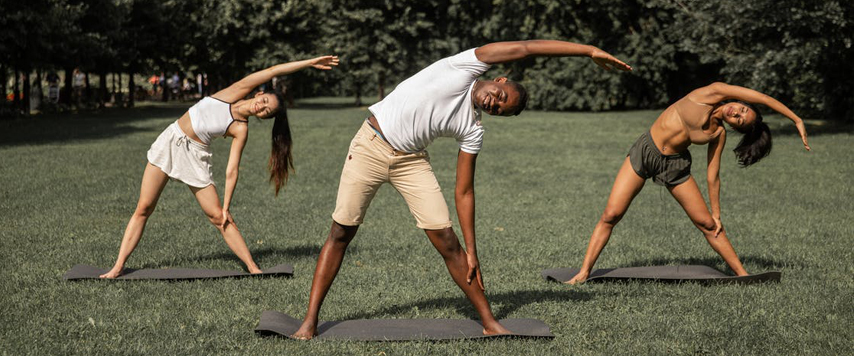
7. Don’t wash your hair excessively, but keep it clean
Washing your hair daily with a mild shampoo may protect against hair loss by removing build-up and keeping the scalp clean. If you have very oily hair washing it daily may very well be necessary. However, it is recommended to wash longer and especially drier hair less frequently, 3 times a week or less. To preserve the thickness and health of your hair and prevent hair loss the rule of thumb is to shampoo less often. Always use lukewarm or cold water when washing and rinsing your hair. If possible, you should also use shampoos and conditioners that are tailored to your own hair type.
8. Don’t overload your hair with styling products
In many cases hair breakage can result from using harsh products. If you have hair that’s thinning, stay away from bleach and other chemicals used to curl or straighten hair. Even everyday products like gels and hairspray can dry out your hair and cause breakage. To reduce the risk of hair loss, try asking a hair care professional to recommend you some more natural products for treating and styling your hair.
9. Don’t overuse styling tools on your hair
Frequent use of hot styling tools like hairdryers, curling wands or straighteners can make your hair dry, prone to breakage and more likely to fall out. The dry heat weakens the hair shaft and can cause dry, frizzy hair that is difficult to style without applying more heat. We recommend that you put your hot tools on the shelf, but if you want to use a hot styling tool there are a few things to think about: lower the temperature to cause less stress on your hair, use a heat protection spray and make sure your hair is as dry as possible to minimize the time spent using the tool.
If you use a hairbrush to detangle your hair, make sure you’re brushing gently to avoid breakage. If you tug or pull at your hair or hear ripping sounds when brushing, you are likely applying too much pressure or being too rough. Your hair is at its most fragile when it’s wet. Be extra careful and use a detangling spray when brushing wet hair to avoid excessive shedding.
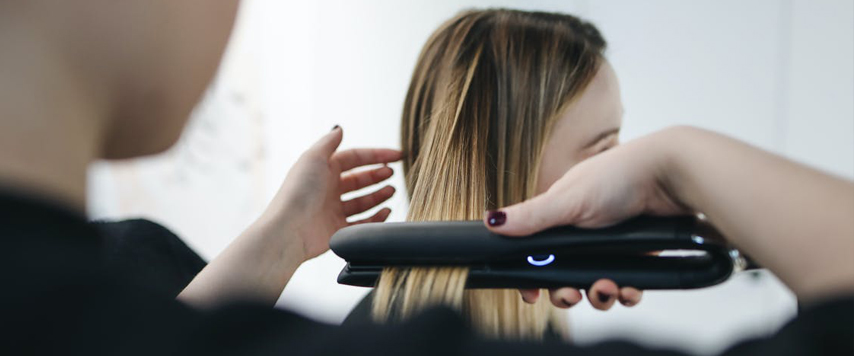
10. Don’t wait too long to seek treatment
The most important thing is to act as soon as you notice you’re shedding more hair than usual, or notice thinning or hair loss. Beginning treatment as early as possible is crucial to seeing the best results and slowing further hair loss. Many people wait until their hair loss is very advanced to seek treatment, and unfortunately it becomes much more difficult to treat at that point.
If you want a completely organic way to stop hair loss and encourage new hair growth, check out our Lurv hair care serum! When used twice a day the leave-in serum activates and nurtures existing hair follicles to strengthen your individual hairs and stop further hair loss. We have great confidence in our products. So much so that if you don’t see any results, you can get your money back with our Growth Guarantee.


